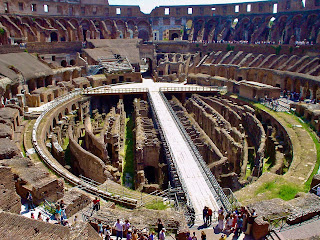Conviction and Grace
Scripture:
Luke 22:54 Then they seized him and led him away, bringing him into the high priest’s house. But Peter was following at a distance. 55 When they had kindled a fire in the middle of the courtyard and sat down together, Peter sat among them. 56 Then a servant-girl, seeing him in the firelight, stared at him and said, “This man also was with him.” 57 But he denied it, saying, “Woman, I do not know him.” 58 A little later someone else, on seeing him, said, “You also are one of them.” But Peter said, “Man, I am not!” 59 Then about an hour later still another kept insisting, “Surely this man also was with him; for he is a Galilean.” 60 But Peter said, “Man, I do not know what you are talking about!” At that moment, while he was still speaking, the cock crowed. 61 The Lord turned and looked at Peter. Then Peter remembered the word of the Lord, how he had said to him, “Before the cock crows today, you will deny me three times.” 62 And he went out and wept bitterly.
Observation:
Peter had always depended upon his own power to push through and follow Jesus. Even when Jesus had told him that he would deny him, Peter couldn’t believe it. Yet, when Peter looked on at Jesus’ capture, he became scared and fear controlled him. Three times he denied Jesus that night, each time the emotion seeming to escalate. Only Luke records the fact that Jesus turns and looks at Peter. Maybe it was simply a glance in his direction, but it was a knowing look. Immediately this led to conviction in Peter’s heart, for he had denied his Lord. However, Jesus’ conviction was also filled with Divine grace, for it included a foreshadowing of the moment when Peter would be restored. Filled with remorse, Peter leaves the scene, weeping bitterly. Augustine would go on to say “even repentance is a gift from God. The heart of the proud is hard ground. It is softened for repentance only if it is rained on by God’s grace” (Sermon 2290.1).
Application:
The night of his arrest, Jesus would have looked at many people. Specifically, we can imagine that he looked into the faces of the officials who had worked hard to have brought him to this place. Yet, there was something about the look that he gave Peter that had an impact. Augustine says:
If Christ had not looked at him, he would not have wept. God hates people relying presumptuously on their own powers. Like a doctor, he lances this swollen tumor in those whom he loves. By lancing it, of course, he inflicts pain, but he also ensures health later. When he rises again, the Lord entrusts his sheep to Peter, to that one who denied him. Peter denied him because he relied on himself, but later Peter would feed his flock as a pastor, because he loved him (285.3).
Because of conviction, there was the possibility of restoration. For restoration to occur there had to be repentance. In the midst of it all, grace was continually at work. The restoration of Peter led to the formation of a great leader who would impact the world, but for that to happen, he had to be willing to respond to God’s grace.
Far too many these days fail to see the need for repentance. Conviction is somehow seen as unnecessary guilt, and taking responsibility for actions has become terribly passé. Instead, we seem to be entering an era where we blame everything upon our own personal circumstances, or the actions/reactions of others, and think that there is no need to take personal responsibility. The end seems to always justify the means. The concept of conviction seems to have disappeared, however, without conviction, can there be repentance and restoration?
Yes, Jesus looked at many people that night, but only Peter responded with a sense of conviction. He realized his guilt and what he had done and began to weep bitterly. No one else wept bitterly, but they continued with their actions against Christ. Jesus’ glance was a look of grace, and Peter recognized it. Conviction for sin comes with the gift of grace. The offer of grace comes with the potential for restoration. When we fail to allow space for conviction, we will never be able to gain restoration. Maybe that’s why so many of us become stuck in our lives, because we don’t want to feel a sense of conviction, but without it, we do not enter into grace. The guards and the priests missed out on the greatest gift given that night — the gracious glance of Jesus.
Our Lord hasn’t changed and continues to look to his people today. The question is ours to answer. What will we do with Jesus’ knowing glance?
Prayer:
Lord, please help me not to become calloused in my Christian walk, but to continually draw near to you. When you giving me that gracious glance, may I be willing to examine myself and allow your grace to work in and through me. Amen.

Comments
Post a Comment